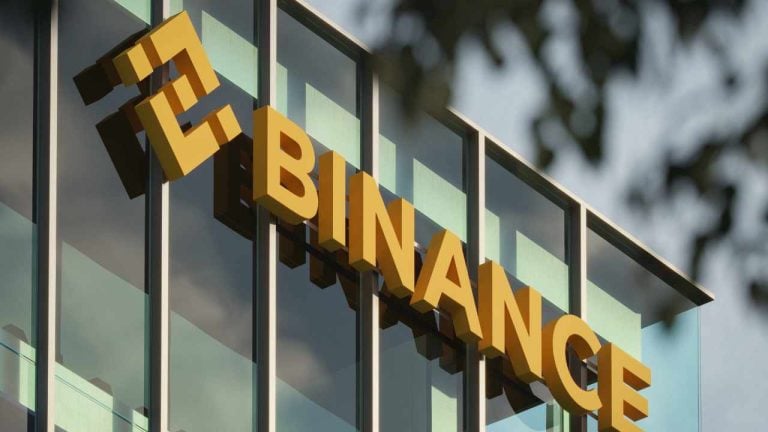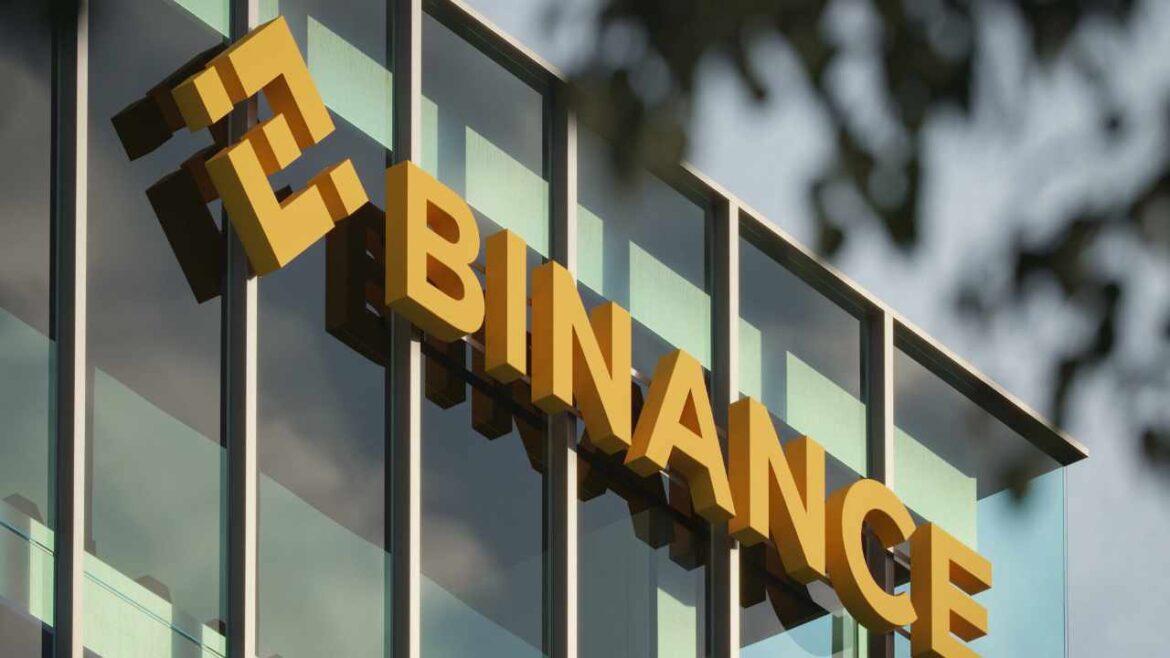 Binance’s chief executive has shared his company’s future direction and areas of focus following its settlement with U.S. authorities, including the Department of Justice (DOJ). “We have moved past that as the company move into greater maturity,” he insisted, adding that the crypto firm is focusing on “sustainability.” ‘The Direction of Travel Is Very Clear’ […]
Binance’s chief executive has shared his company’s future direction and areas of focus following its settlement with U.S. authorities, including the Department of Justice (DOJ). “We have moved past that as the company move into greater maturity,” he insisted, adding that the crypto firm is focusing on “sustainability.” ‘The Direction of Travel Is Very Clear’ […]
Source link
Authorities
Hong Kong authorities issue public alert about fraudulent crypto exchange masquerading as MEXC Global

Hong Kong’s Securities and Futures Commission (SFC) and local law enforcement have jointly issued a public warning against an entity masquerading as crypto exchange MEXC Global.
The scammers are reportedly pretending to be a legitimate virtual asset trading platform (VATP) and luring unsuspecting victims into participating in what appears to be a crypto investment scam.
The list of blocked web domains included in the alert shows the scammers are using links with addresses that start with “mexc” and end in random alphabets akin to phishing links.
MEXC Global’s actual website does not appear in the list as of press time.
Fraud warning
The SFC has placed MEXC and its associated websites on the Suspicious Virtual Asset Trading Platforms Alert List as of Feb. 9, following intelligence shared between the SFC and the police under a joint working group focused on monitoring and investigating illegal activities in the virtual asset space.
Victims were reportedly drawn into social media or instant messaging chat groups under the guise of receiving free investment advice, only to be directed to MEXC-operated websites for crypto purchases. Subsequently, these individuals were prompted to deposit funds into specific bank accounts for investment purposes, facing difficulties when attempting to withdraw their funds later.
The Hong Kong Police have taken steps to block access to websites operated by MEXC. However, there is an ongoing concern that MEXC may continue to create new websites with similar domain names to perpetuate their fraudulent scheme. The public is urged to exercise caution and remain vigilant against such deceptive practices.
The SFC’s repeated warnings emphasize the importance of due diligence and the need for investors to be wary of “too-good-to-be-true” investment opportunities, especially those promoted through social media platforms and instant messaging apps.
The regulatory body said that fraudulent, unlicensed platforms often adopt names similar to legitimate entities to mislead investors. The public is advised to verify the legitimacy of virtual asset trading platforms before engaging in any investment activities to safeguard against potential fraud.
Regulatory crackdown
The warning against MEXC comes amidst a broader regulatory crackdown on unlicensed crypto operations in Hong Kong following the introduction of a regulatory framework for licensing crypto exchanges last year.
The SFC recently reminded entities engaged in crypto exchange services to apply for licenses by Feb. 29 or cease operations by May 31. To date, Hong Kong has issued licenses to two platforms under the new framework — HashKey and OSL.
Additionally, Hong Kong authorities have launched a public consultation on legislative proposals aimed at implementing a comprehensive licensing regime for providers of over-the-counter virtual asset trading services.
This initiative seeks to mandate licensing requirements for entities offering spot trading services for virtual assets and proposes extending the oversight of the Commissioner of Customs and Excise (CCE) to encompass all over-the-counter virtual asset services. This includes monitoring licensees’ compliance with anti-money laundering and anti-terrorist financing standards.
Hong Kong authorities investigating Worldcoin over data privacy concerns

The Office of the Privacy Commissioner for Personal Data (PCPD) in Hong Kong has initiated an investigation into Worldcoin over data privacy concerns related to its collection of biometric data, according to a Jan. 31 press release.
The PCPD said it executed court warrants to enter six Worldcoin premises on Jan. 31 in Yau Ma Tei, Kwun Tong, Wan Chai, Cyperport, Central, and Causeway Bay.
Hong Kong raids
According to the PCPD, the investigation focuses on the potential misuse of personal data, particularly the biometric data collected by Worldcoin in exchange for cryptocurrency tokens. The regulator said there are significant risks in collecting such sensitive data, and there are concerns that Worldcoin is in “contravention” of regulatory requirements related to data collection and storage.
The PCPD’s action aims to determine whether Worldcoin data collection practices comply with the Personal Data (Privacy) Ordinance (PDPO). The operation involved the collection of documents and information from Worldcoin to review its data collection and processing methods.
The watchdog has advised the public to consider the necessity, purpose, and retention period of biometric data collection before participating in such activities. The regulator emphasized the sensitivity of biometric data, given its unique and unalterable nature.
The PDPO mandates that organizations collect personal data for lawful purposes and secure the data against unauthorized or accidental access and use. It also restricts using personal data for new purposes without explicit consent.
The PCPD also requested that the public submit any complaints and information regarding Worldcoin’s data practices.
Worldcoin’s regulatory woes
The Worldcoin project is undergoing similar investigations in several countries due to privacy concerns over collecting biometric data, notably iris scans, for digital identity verification and cryptocurrency distribution.
The Bavarian State Office for Data Protection Supervision in Germany initiated its investigation in 2022, driven by concerns about the scale of sensitive biometric data processing. The probe focuses on the legality of Worldcoin’s practices under the EU’s strict data protection regulations, particularly scrutinizing issues of user consent and the clarity of information provided to users about their data usage.
Similarly, the Argentine Agency for Access to Public Information (AAIP) launched an investigation into the project after a surge in local interest. The AAIP is examining Worldcoin’s adherence to local data protection laws, specifically focusing on how the company safeguards the privacy of its users in Argentina. This includes reviewing the security measures Worldcoin employs to protect the collected biometric data.
Meanwhile, the Kenyan government has suspended Worldcoin’s operations in the country following an investigation deemed its activities to be “espionage.”The project has been working with the authorities to resolve the situation.
Bulgarian authorities drop money laundering investigation into Nexo executives

Sofia City Prosecutor’s Office has concluded a high-profile investigation into the activities of four individuals linked to the Nexo online platform.
The investigation, initiated on September 29, 2022, focused on allegations of participation in an organized criminal group and unauthorized banking activities through Nexo. Four individuals were accused of operating an organized criminal group from 2018 to January 2023 under Art. 321 of the Criminal Code.
Additionally, two of the individuals faced charges for conducting unlicensed banking transactions from June 2018 to January 2023, which involved lending and deposit raising in various currencies on the Nexo platform without appropriate authorization under the Law on Credit Institutions (CLI).
The investigation entailed extensive procedural and investigative actions, including witness interviews with a secret identity, technical and banking expertise, and analysis of payment account movements. International cooperation was also evident, with European Investigation Orders and their subsequent responses playing a crucial role.
The technicality defense
Despite an elaborate investigation and international scrutiny, including administrative actions against Nexo in various US states, the supervising prosecutors concluded that the evidence did not substantiate the charges. No proof of a criminal association, banking activity without a permit, money laundering, tax crimes, or computer fraud was found against the defendants.
A key aspect of the investigation’s conclusion was the legal status of virtual currencies in Bulgaria and the EU. As per the European Banking Authority’s report and the current legal framework, crypto-assets are not recognized as legal means of payment or regulated financial instruments in Bulgaria and the EU. This lack of regulation was pivotal in determining that Nexo’s activities, which were primarily conducted online and likely managed outside Bulgaria, did not constitute financial crimes.
The settlement between Nexo and various US regulatory authorities further substantiated the absence of fraud or misleading practices in Nexo’s operations. This comprehensive analysis led to the termination of criminal proceedings, with the supervising prosecutors concluding that no crime had been committed under the current legal regime for crypto assets and financial services.
Dubai’s regulator VARA shows how authorities, market can work in tandem — vice chair

The Virtual Assets Regulatory Authority (VARA) is one of the earliest regulatory bodies to release comprehensive crypto assets regulations to promote crypto-related activities in Dubai. Established in March 2022, VARA was created to promote the emirate as a regional and international hub for virtual assets and related services.
VARA released a comprehensive regulatory framework for virtual asset service providers (VASPs) in February. The regulatory framework includes four compulsory rulebooks and activity-specific rulebooks for VASPs. The rules will govern VASPs operating within the Dubai region only. The VARA framework also includes a rulebook for marketing, advertising and promotions by VASPs.
Cointelegraph spoke to Deepa Raja Carbon, managing director and vice chair at VARA, to gain insight into the regulatory bodies’ views on the nascent technology and critical challenges it faced while establishing the framework for crypto assets. When asked about VARA’s approach to digital assets and what made it successful compared to other global regulators, Carbon said VARA’s unique proposition lies in its agility, collaborative ethos and ability to respond swiftly to market needs.
Carbon explained that VARA follows the ethos underpinning a philosophy that seeks to “find the highest point of convergence as a universal threshold rather than a minimum standard baseline is what will ultimately elevate and scale the entire ecosystem.”
“VARA is setting a precedent for how regulators can work in cohort with the market, dynamically adjusting to its pulse to sculpt a regulatory environment that is robust, resilient and responsive: the 3R-Pyramid. It is this combination of speed, collaboration and unwavering dedication to quality that defines our progress and, we believe, will help usher in a new era of borderless economic opportunity with traceable, hence minimized, cross-border risks.”
When asked about the key challenges faced by VARA while establishing these virtual asset frameworks, Carbon noted that crafting guidelines for a nascent industry like virtual assets is undeniably challenging. She added that the regulatory body rigorously analyzed existing frameworks and keenly observed the learning curves experienced by other regulatory bodies.
Magazine: Crypto City: Guide to Dubai
Carbon told Cointelegraph that the regulatory body followed an inherently consultative and collaborative approach by engaging with various stakeholders ranging from industry leaders and innovators to peer regulators and legislators, as well as the general public.
“We ensured our guidelines are not only comprehensive but also resonate with the needs and realities of the market. By working in concert with Dubai’s established entities like DET and the DFZC for Mainland and the various free zones, we’ve crafted a unified and fungible framework.”
VARA’s crypto regulations aim to make Dubai one of the industry’s hot spots as more countries in the Middle East and Asia look to attract digital asset businesses. Hong Kong has also made big strides in crypto regulation in 2023, setting up various regulatory guidelines for crypto platforms catering to retail and institutional clients.
Magazine: ‘Elegant and ass-backward’: Jameson Lopp’s first impression of Bitcoin
Zhu Su, co-founder of the now-bankrupt Three Arrows Capital (3AC), has been apprehended in Singapore, according to a tweet by online news aggregator db, known as @tier10k on X, and later confirmed by Three Arrows’ liquidator, Teneo.
According to the liquidator, Zhu’s arrest and sentence stems from his failure to cooperate during 3AC bankruptcy proceedings. His partner and 3AC co-founder. Kyle Davies, is also wanted by Singaporean authorities but has not yet been apprehended.
Downfall
3AC’s downfall was a shocking event in the crypto industry, given its prominent position and substantial investment stakes in projects such as LUNA, Aave, Avalanche, BlockFi, Deribit, and Solana. The company’s lack of a robust risk management framework, coupled with reckless dealings and a significant degree of greed, set the stage for its collapse, according to an analysis by CryptoSlate.
The chain reaction leading to 3AC’s collapse was set off when LUNA, a major investment of the firm, experienced a crash in May. Despite managing approximately $18 billion in crypto assets at its peak, 3AC failed to meet its margin calls in June, leading to speculation about the firm’s financial status. Subsequently, the failure to repay borrowed money from crypto broker Voyager Digital, totaling $665 million, led to further destabilisation in the industry.
The Monetary Authority of Singapore (MAS) played an instrumental role in bringing light to the firm’s murky dealings. In September, MAS issued a nine-year prohibition order against 3AC founders Zhu Su and Kyle Davies. MAS’s investigation revealed that 3AC had failed to inform the regulator about the appointment of Cheong Jun Yoong Arthur as its portfolio manager and had misrepresented his employment status. These actions, in addition to an inadequate risk management framework, were attributed to the failures of Zhu and Davies in fulfilling their duties.
3AC’s collapse had far-reaching effects, impacting not just its stakeholders but also other companies in the industry. Voyager Digital was forced to file for bankruptcy due to the lack of repayment from 3AC. The cascade of events led to damages totaling more than $3 billion, affecting 27 companies in total.
The post Su Zhu arrested in Singapore; Kyle Davies wanted by authorities appeared first on CryptoSlate.
Kenyan authorities raid Worldcoin warehouse in Nairobi under search warrant
Kenyan authorities raided a Worldcoin warehouse in Nairobi on Aug. 5 under a search warrant over concerns that the company’s data collection practices may not adhere to privacy laws in the country, according to local media reports.
The police confiscated various documents and machines believed to store the data collected by the company through its iris-scanning “orbs” that were launched in late July. The confiscated material was taken to the Directorate of Criminal Investigations for further analysis.
The Kenyan government suspended Worldcoin’s operations last week due to security concerns. Interior Cabinet Secretary Kithure Kindiki led the suspension.
Data Commissioner Immaculate Kassait told local media that Worldcoin’s parent company — Tools for Humanity — had not disclosed its “true intentions” during registration.
Kenyan law protects individual citizens’ data privacy rights and mandates that no personal information be revealed or required unless necessary. Worldcoin gathering biometric data in return for cryptocurrency does not qualify as necessary under the country’s rules.
Meanwhile, the Kenyan Capital Markets Authority said Worldcoin is not regulated in the country and is concerned about people registering their data with the company.
Worldcoin told local media that it cooperates with the government and plans to resume operations after implementing “crowd-control measures.”
Kenya is the latest in a list of countries that have raised concerns over Worldcoin gathering people’s biometric data in return for cryptocurrency.
The project is also under investigation in the U.K., France, and Germany, although its operations have not been suspended in Europe.
Worldcoin has clarified that it does not store the data once the orbs generate a unique iris code. The images taken to create the iris code are deleted within the orb without ever being moved.
According to Worldcoin’s website:
“The Orb is equipped with a powerful computing unit to run several neural networks concurrently in real-time. This enables it to validate a person’s humanness locally on the device, without needing to send, upload or save images. Similarly, a person’s iris code, or a mathematical representation of the iris texture, is generated locally on the Orb as well.”
This has not been enough to allay the worries of regulators and privacy advocates, who believe a more thorough examination of the technology would be a prudent measure.
Despite the regulatory hurdles in multiple jurisdictions, Worldcoin has seen demand for its “global ID” and token almost doubled since its launch.
The post Kenyan authorities raid Worldcoin warehouse in Nairobi under search warrant appeared first on CryptoSlate.
French authorities launch probe into Worldcoin over data collection practices
French privacy regulator CNIL has initiated a probe into Worldcoin over concerns that its data collection and storage practices may not be entirely legal, Reuters reported on July 28.
The watchdog is collaborating with its German counterpart as the latter directly oversees the project as its primary European regulator.
The CNIL told the newswire:
“The legality of this collection seems questionable, as do the conditions for storing biometric data.”
The project is also under investigation in the U.K. for similar reasons.
Worldcoin Foundation told CryptoSlate via email:
“The Worldcoin Foundation complies with all laws and regulations governing the processing of personal data in the markets where Worldcoin is available, including the General Data Protection Regulation (GDPR).”
The foundation added that Worldcoin is under the supervision of the Bavarian State Office for Data Protection Supervision (Bayerisches Landesamt für Datenschutz) in Europe and is committed to working with regulators around the world to ensure it remains fully compliant.
Orbs
Worldcoin recently launched its token and the so-called “Orbs” — devices used to scan eyes — on July 24 to collect willing participants’ biometric iris data. People who scan their eyes through the orb get a unique Worldcoin ID and 25 Worldcoin tokens.
Worldcoin founder Sam Altman claimed the project is onboarding roughly eight users per second through the orbs as of July 27.
The project launched 1500 orbs in multiple major cities around the world, including in the U.K., France, and Germany. However, the orbs and the coin have not been launched in the U.S. for now due to a lack of regulatory clarity.
Worldcoin Foundation said it will focus on increasing the orbs in jurisdictions more welcoming toward the crypto industry than those still on the fence.
The project has been gaining steam throughout the second quarter, and the coin’s launch has been well received by most of the crypto community despite the privacy and data concerns around the project.
Meanwhile, network activity has surged since the launch, with transactions hitting an all-time high of 944,668 in a single day on July 27, according to Etherscan data.
The post French authorities launch probe into Worldcoin over data collection practices appeared first on CryptoSlate.
Kuwait Authorities Impose Ban on Bitcoin and Other Virtual Asset Transactions
The ban crypto transactions in Kuwait is reportedly part of a broader regulatory initiative that involves multiple supervisory authorities, including the Ministry of Commerce and Industry, the Central Bank of Kuwait, and the Insurance Regulatory Unit.
Kuwait, a country in West Asia, has taken a stringent step in its regulatory stance on cryptocurrencies by imposing a comprehensive ban on all transactions involving crypto and other digital assets in the nation. The country’s financial regulator, the Capital Markets Authority (CMA) of Kuwait, released a circular on July 18, enforcing the absolute prohibition on major activities related to virtual assets, including Bitcoin (BTC), following in the footsteps of other nations such as Pakistan, Argentina and China which have already implemented similar restrictions on virtual assets in their various jurisdictions.
The ban covers crucial aspects of the crypto ecosystem, such as payments, trading, making investments in crypto, and engaging in mining operations. The move aims to address the potential risks associated with virtual assets and to safeguard the interests of consumers and investors.
CMA Claims Cryptocurrencies Lack Legal Status
While the ban prohibits crypto traders in the country from engaging in any digital assets-related activities, the new rule does not extend to traditional financial products in the country. According to the circular, the restriction does not apply to securities and other financial instruments regulated by the Central Bank of Kuwait and the CMA.
In its circular, the CMA cited the lack of legal status for cryptocurrencies as part of the reasons for the ban, emphasizing that digital assets are not issued or supported by any central authority.
In addition to the prohibition, the authorities have warned the public about the potential risks involved in engaging with digital assets, noting that prices or values of these assets are often driven by speculative trading, making them highly volatile and susceptible to sharp price fluctuations.
“It is not linked to any asset or issuer, and the price of these assets are always driven by speculation that exposes them to a sharp decline,” said CMA in the circular.
Crackdown on Money Laundering and Terrorist Financing
The financial authorities said in the circular that the recent regulatory changes align with the country’s dedication to combating money laundering and illicit activities related to cryptocurrencies within the nation. In line with its commitment to tackling money laundering and terrorist financing, the regulator emphasized that any violations of the country’s Anti-Money Laundering (AML) laws may result in penalties under Law No. 106 of 2013. These measures reinforce Kuwait’s efforts to maintain financial integrity and security.
The CMA also pointed to a study in the circular conducted by the National Committee for Combating Money Laundering and Financing of Terrorism regarding the commitment to implementing the Financial Action Task Force’s (FATF) Recommendation (15).
For clarity, the FATF Recommendation 15 is a regulatory framework that requires crypto exchanges and other virtual asset service providers (VASP) in the country to implement AML rules for money laundering and countering the financing of terrorism.
Meanwhile, the ban on Bitcoin and other crypto transactions in Kuwait is reportedly part of a broader regulatory initiative that involves multiple supervisory authorities, including the Ministry of Commerce and Industry, the Central Bank of Kuwait, and the Insurance Regulatory Unit. This coordinated effort ensures a consistent and unified approach to address the challenges posed by the rapidly growing cryptocurrency market.
next
Altcoin News, Bitcoin News, Blockchain News, Cryptocurrency news, News

Chimamanda is a crypto enthusiast and experienced writer focusing on the dynamic world of cryptocurrencies. She joined the industry in 2019 and has since developed an interest in the emerging economy. She combines her passion for blockchain technology with her love for travel and food, bringing a fresh and engaging perspective to her work.
You have successfully joined our subscriber list.









